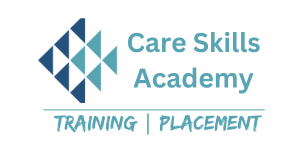Drones have become essential in a wide range of industries, from aerial photography and agriculture to logistics and emergency response. With the increasing use of drones, there’s a growing need for skilled technicians who can repair and maintain these advanced devices. A Drone Repairing Course offers the perfect blend of theoretical knowledge and hands-on practice, preparing individuals for a promising career in a high-tech field. This blog outlines what a drone repair course entails, the skills you’ll gain, and the exciting career opportunities it can unlock.
Why Choose a Drone Repairing Course?
Drone technology has taken off in recent years, but as drones become more complex, so do the repair and maintenance needs. Drones are intricate machines with multiple components like cameras, sensors, motors, and electronic control systems. These components can suffer from wear and tear, leading to technical issues or malfunctions that require professional intervention. For anyone looking to build a career in electronics or technology, a Drone Repairing Course is a great step toward gaining in-demand, specialized skills in an emerging industry.
Key Components of the Drone Repairing Course
A good drone repairing course covers several essential areas, including:
- Fundamentals of Drone Technology: Students start by learning the basics of drone technology, including various types of drones, flight principles, and an overview of the different industries using drones. Understanding the foundational concepts of aerodynamics, flight control, and navigation is key to diagnosing issues.
- Drone Hardware Components: Drones are composed of multiple hardware elements like motors, propellers, cameras, sensors, and GPS modules. In this course, students dive deep into the function and repair of each component. Hands-on training helps in dismantling, inspecting, and reassembling drone parts, which is essential for effective troubleshooting.
- Battery and Power Management: Proper battery care and power management are crucial for drone operation. Students learn about battery maintenance, voltage testing, charging techniques, and safety procedures to maximize battery life and ensure safe drone usage. Battery troubleshooting is a necessary skill, as power issues are among the most common problems in drones.
- Electronics and Circuitry: Understanding electronic circuits is vital in drone repair, as drones rely heavily on microcontrollers, sensors, and transmitters. The course covers basic circuit theory, soldering techniques, and repairing or replacing damaged circuit boards, which are common tasks for drone technicians.
- Diagnostics and Troubleshooting: One of the most valuable skills in drone repair is the ability to diagnose problems quickly. The course teaches students how to use diagnostic tools and interpret error codes, enabling them to identify issues with cameras, GPS, motors, or software.
- Firmware and Software Updates: Modern drones rely on firmware and software for optimal performance. Learning to troubleshoot software issues, perform updates, and recalibrate drone software is essential for maintaining drone functionality and compatibility with controllers.
- Safety and Regulatory Standards: Since drones are regulated by aviation authorities in many countries, technicians need to be aware of these rules and safety standards. The course often includes a module on industry regulations and safe handling practices, particularly for commercial drone use.
Hands-On Training and Practical Application
A unique aspect of the Drone Repairing Course is the hands-on training it provides. Students get real-world practice working on different drone models, learning how to use tools such as multimeters, oscilloscopes, and diagnostic scanners. This practical experience is invaluable in building confidence and preparing students for real-world scenarios. Some courses even offer internships or field training, where students can work with professional technicians or in repair shops, gaining practical experience and insight into the industry.
Career Opportunities After Completing the Drone Repairing Course
The skills learned in a drone repair course open doors to various career paths in this expanding field:
- Drone Technician: Many companies require skilled technicians who can repair and maintain drones. As a drone technician, you’ll be responsible for diagnosing and fixing issues in various drone models, making it an ideal job for those who enjoy hands-on work.
- Field Technician: Field technicians work on-site to repair drones for industries that rely heavily on drone technology, such as agriculture, logistics, or surveying. This role often involves traveling to different locations and working directly with clients.
- Drone Maintenance Specialist: In some organizations, drone maintenance specialists are tasked with performing regular maintenance and inspections to keep fleets of drones operational. This role is essential in industries where downtime can be costly, such as media, construction, and logistics.
- Freelance Drone Repair Specialist: For those who prefer to work independently, freelance drone repair is an excellent option. Freelancers can set up their own businesses, offering repair services for hobbyists, commercial users, and drone rental companies.
- Trainer or Instructor: Experienced technicians may choose to transition into training roles, helping the next generation of drone technicians develop their skills.
Why a Drone Repairing Course is a Smart Career Move
With the global drone market expected to grow significantly, skilled technicians are in high demand. A Drone Repairing Course not only provides job-specific skills but also helps students enter a high-tech industry with a positive job outlook. The course can usually be completed in a few months, offering a fast and practical entry into a specialized field with diverse opportunities.
Drones are set to become even more integral to daily life and work in the coming years, making drone repair a field that’s likely to offer stability, innovation, and growth. This course also allows for personal and professional development, as technology continues to advance and new types of drones emerge.
Conclusion
A Drone Repairing Course offers an exciting way to develop practical skills in a fast-growing industry. By learning how to troubleshoot and repair drones, students are well-prepared to enter a career with high demand, interesting challenges, and great potential for growth. For tech enthusiasts and those looking for a hands-on, high-tech profession, drone repair is a rewarding path.

